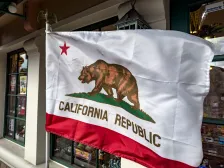Three states team up in investigative sweep of companies flouting data opt-out laws

A joint investigative sweep across three states kicked off this week aimed at identifying companies that aren’t following opt-out laws for collecting consumer data.
The efforts, led by the state attorneys general, the California Privacy Protection Agency and other state regulators, will involve contacting businesses across all three states who may not be processing opt-out requests or using Global Privacy Control (GPC), and ensuring they start following the required regulations.
“Californians have the important right to opt-out and take back control of their personal data — and businesses have an obligation to honor this request,” Attorney General Rob Bonta said in a statement. “Today, along with our law enforcement partners throughout the country, we have identified businesses refusing to honor consumers’ requests to stop selling their personal data and have asked them to immediately come into compliance with the law.”
California, Connecticut and Colorado all have laws requiring companies to adopt GPC, a browser extension that allows consumers to automatically and universally opt out of invasive data collection. The use of GPC is also required in other states, such as Texas, that aren’t part of this week’s enforcement actions.
According to the Privacy Tech Lab at Wesleyan University in Connecticut, GPC will “automatically send a signal or raise a privacy flag from your browser every time you visit a website.”
“This signal tells the website that you want to opt out of having your personal data sold or used for targeted advertising,” the lab noted.
Some browsers, like Mozilla’s Firefox, have this feature built into their product, while others, like Google’s Chrome, require a third-party extension to use it. But in most cases, it only takes a few minutes to set the protections up on your device or browser.
Connecticut Attorney General William Tong said in a statement that while “many businesses have been diligent in understanding these new protections and complying with the law,” the sweep was about “putting violators on notice today that respecting consumer privacy is non-negotiable.”
In response to questions about the scope of the joint investigation, when it began and whether noncompliant firms would face fines or other sanctions, a spokesperson for the California Department of Justice said in a statement to CyberScoop that the state has used the California Consumer Privacy Act in the past to get court orders and fine privacy offenders, including companies that failed to follow opt-out laws, citing a $1.2 million state fine paid by Sephora in 2022. The spokesperson described the current investigative sweep as “ongoing.”
“We’ve enforced the CCPA against companies, including for failing to honor opt-out requests via the GPC, and obtained both injunctive relief and civil penalties,” the spokesperson said. “Beyond this, to protect their integrity, we’re unable to comment on, even to confirm or deny, any potential or ongoing investigations.”
The sweep represents one of the larger nationwide efforts by states to enforce data privacy opt-out laws — one of the few legal protections U.S. consumers have to prevent wanton data collection and targeted advertising by companies.
Many states have privacy laws that require businesses to give consumers the option to opt-out of having their data being collected or sold to third parties. However, some businesses that profit from buying and selling data simply don’t comply with those laws or make the opt-out process so complicated that it can frustrate and discourage consumers from exercising their rights.
Last year, the CPPA conducted its own sweep of data brokers out of compliance with state laws amid evidence that at least 40% of the companies on the state’s data broker registry were not complying — or flat out ignoring — requests from consumers to delete their data or opt out of collection.
In April regulators from California, Colorado and Connecticut — along with four other states — formed a bipartisan consortium to work together on implementing and enforcing common privacy laws across state borders. The other states in the coalition are Delaware, Indiana, New Jersey and Oregon.
This story was updated Sept. 11, 2025, with comments from the California Department of Justice.






